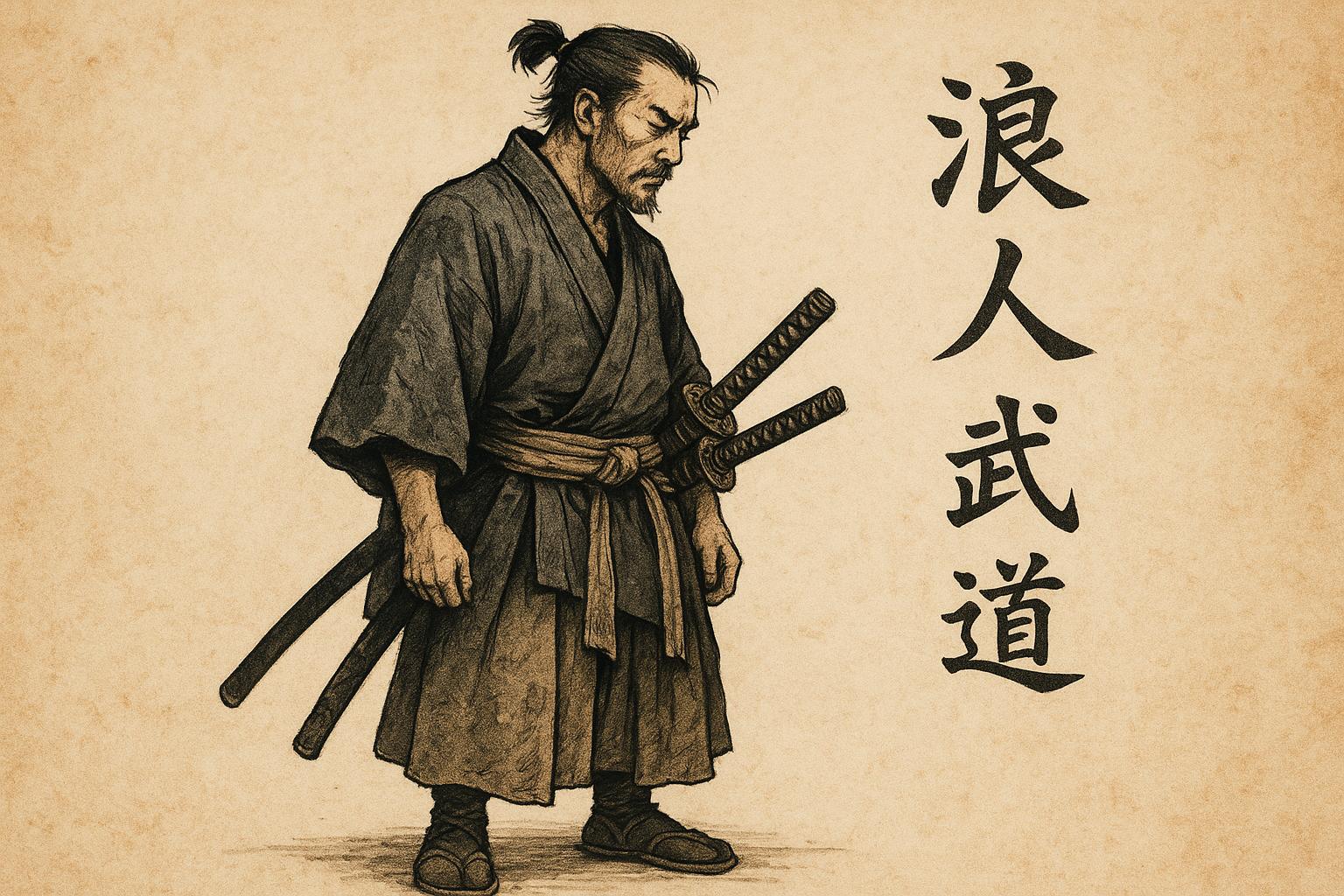Introduction to Ronins and Bushido
In the world of Japanese samurai, the concept of a ronin holds a significant and unique position. A ronin, traditionally defined as a samurai without a lord or master during the medieval and early modern periods, represents a deviation from the standard samurai code of loyalty and service. Understanding ronins and their influence on Bushido ethics provides insight into the complexities of Japanese culture and history.
Who Were the Ronins?
Ronins emerged primarily during periods of social upheaval in Japan. A samurai would become a ronin if he lost his master due to various circumstances such as defeat in battle, the master’s disgrace, or political change. Unlike samurai who served a specific lord, ronins were often seen wandering and seeking new employment but faced significant social and economic challenges.
The transition from a samurai to a ronin was not merely a shift in occupational status but also a step down in social standing. Samurai were part of a robust hierarchical order that linked them to the feudal lords they served. This relationship was reciprocal: samurai provided martial expertise and loyalty, while lords offered protection and sustenance. As a ronin, the severance of this bond often led to a struggle for identity and purpose.
Moreover, ronins were viewed with a mix of sympathy and disdain. They were considered rootless and unstable by society, free from the binds of traditional feudal obligations but lacking the honor and structure the samurai class was known for. This dual view made ronins complex figures within Japanese social orders, where prestige and adherence to codes of honor typically dictated one’s role and value.
Impact on Bushido Ethics
The existence of ronins complicated the idealized image of the samurai code, also known as Bushido, which emphasized loyalty, duty, and honor. Despite their marginalized status, ronins influenced Bushido in several ways:
Challenge to Loyalty: Ronins’ very existence questioned the absolute nature of loyalty that Bushido prescribed to samurai. By living outside the strict hierarchical confines of lord and servant relationships, ronins highlighted the vulnerability and volatility inherent in such systems. This unpredictability introduced a pragmatic layer to the otherwise rigid Bushido ethics, suggesting that loyalty had its limits and the ability to adapt to new circumstances was also a vital skill.
Adaptation and Survival: Ronins were often forced to adapt to survive. This need for adaptation subtly shifted Bushido from a rigid code to one that could accommodate practical considerations, emphasizing resourcefulness as a virtue alongside traditional values. Ronins, thus, could be seen as early exemplars of adaptability in a rapidly changing socio-political landscape. Their ability to freelance, moving from place to place and taking on various roles, exemplified a new model of living with honor outside fixed feudal conventions.
Legends and Literature: The stories and legends surrounding famous ronins, such as the 47 Ronin, have left an indelible mark on Japanese literature and arts. These narratives frequently explore themes of justice, revenge, and sacrifice, complexifying the nature of honor and ethics within Bushido. Through these accounts, ronins became cultural icons who embodied a blend of noble defiance and inevitable tragedy, representing both the strengths and limitations of traditional samurai values.
Notable Ronins and Their Legacies
Among the many ronins, some have left notable legacies that continue to influence modern interpretations of Bushido:
Miyamoto Musashi: A legendary swordsman known not only for his impeccable swordsmanship but also for his philosophy and writing, particularly “The Book of Five Rings.” Musashi’s life as a ronin showcased individualism and a philosophical approach to martial arts. His treatises on strategy and tactics diverged from the formal pedagogies of the time, offering a more personal and improvisational method to combat and life.
Musashi’s philosophies continue to reverberate in modern Japanese culture, not just in martial contexts but also in business and personal development spheres, where adaptability and strategic thinking are valued.
The 47 Ronin: This tale of the Ako incident, where 47 samurai avenged their master’s disgrace, remains a cornerstone in Japanese culture. It highlights the tension between the ideal of loyalty and the necessity of justice, illustrating ronins’ enduring impact on Bushido ethics. The story has been retold numerous times in kabuki theatre, films, and novels, demonstrating the powerful resonance of ronins’ actions in the collective consciousness.
While the 47 Ronin are celebrated as steadfastly loyal, the nuanced understanding of their narrative underscores the challenges of upholding duty in a world rife with moral ambiguities and personal loss.
Conclusion
Ronins, through their complex status and actions, significantly influenced Bushido ethics by challenging and altering the rigid codes of loyalty and honor that defined the samurai class. Their stories and real-life legacies invite ongoing reflection on the intricacies of loyalty, justice, and personal ethics, continuing to fascinate those who study Japanese history and culture.
The dynamic narrative of ronins also serves as a broader allegory for adaptation and ethical dilemmas faced by individuals within societal structures. Ronins embodied a paradox, portraying both the honor associated with unwavering loyalty and the necessity for personal redefinition when structures of fealty dissolved. This duality has enshrined them in historical discourse as both mavericks and bastions of an evolving ethical landscape, continuing to attract scholarly and popular attention across generations.

